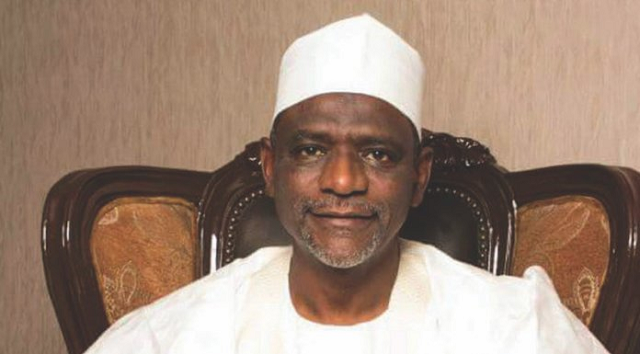Minister of Education, Mallam Adamu Adamu, has said the federal government has approved the establishment of new Federal Science and Technical Colleges in 16 states in its effort to reposition the nation’s educational system for self-reliance.
This was coming as Rivers State Governor, Nyesom Wike, said no nation could develop without appropriate education and vocational skills by its citizens.
In a keynote address at opening ceremony if the 64th Meeting of the National Council on Education (NCE) in Port Harcourt yesterday, Minister of Education, Mallam Adamu Adamu, said the federal government was working towards developing a functional educational system that would make citizens self-reliant.
He said: “There is no doubt that Technical and Vocational Education and Training holds the key to the development of our country’s industrial sector, thus the challenges of youth unemployment can best be addressed through quality education that guarantees self-reliance.
“Entrepreneurship Education and training is globally acknowledged as an important strategy for tackling youth unemployment. In our drive to reposition education for self-reliance, particular attention has been given to the development of technical, vocational and entrepreneurial skills in learners as the present administration has trained over 500 science, vocational and mathematics teachers on the use of modern equipment and new approaches in schools.”
Adamu added that the federal government was improving access to quality education in different parts of the country.
While declaring open the meeting, Wike stated that the nation can only attain development when the citizens are empowered with the right knowledge and appropriate skills to contribute to national growth. He said educational empowerment would equip the citizens to sustain themselves.
According to him, “The reality is that no country can be politically stable, economically robust and socially secure and cohesive if the citizens are not empowered with knowledge, appropriate skills and the right values to sustain themselves and contribute meaningfully to the progress of the country.”
He called for the promotion of inclusive and equitable quality education to promote lifelong learning opportunities for all by 2030.
He said: “Agenda 2030 is therefore a call to action on our collective commitments to transformative education by addressing all forms of exclusion, disparities and inequities and ensuring that every child, irrespective of social background, cultural affiliation, location and family or income status is not left behind but have equal and equitable access to quality and transformative public education.
“This requires providing the enabling legal framework, adopting the right policies and programme of action, deploying adequate resources and manpower, including qualified teachers in addition to a strong political will from the government at all levels.”
The governor identified lack of political will by government, inadequate allocation of resources, lack of commitment and by parents, teachers and school leaders, lack of or ineffective monitoring policy implementation as some of the serious factors responsible for the deteriorated status of education across the country.
Wike said: “As a former Minister of State Education, I am quite familiar with the NCE and what it stands for as the highest national policy organ on education. During our time and under my watch as minister, we initiated and implement several policies and programmes, such as the Girl-Child Education programme, the Almajiri education policy and programme, and the Special Vocational/Basic Education programme for boys as well as the national policy on Albinism. We also strengthened the quality of learning with the provision of modern e-libraries for the Federal Government Colleges.
“While I am not very sure of the present status of these laudable programmes, I do believe that they are fundamental to resolving some of the age-long underlying problems with our education system that borders on lack of universal access, equity and gender inequality. And if you reflect for a moment on the state of our country – the chaos, the misery, stagnation and hopelessness among the majority of our people, you will appreciate the cost of inadequate investments in education.”
The governor added that in Rivers State, his administration has invested in the development of education for the rapid growth of the state.
He said: “Here in Rivers State, our commitment is to provide equal opportunity to all our children to attend great schools, be taught by committed and well-motivated teachers at all levels and enable them to acquire the training and skills they need to realise their full potential and be successful citizens. We have successfully renovated, expanded and equipped over 400 basic education schools while 68 new schools are under renovation with this year’s grant.
“We have rebuilt, expanded and fully equipped a number of our secondary schools across the state, while many more are undergoing similar reconstruction and expansion. We have also expanded the carrying capacity of all our tertiary institutions with additional faculties and infrastructure to enable more of our youths to access tertiary education.
“Besides effectively banning the collection of all forms of levies from parents in the public-school system, we have released adequate funds through the Ministry of Education to school heads for the sustainable administration of all our public schools.”
Also speaking, Minister of Women Affairs, Pauline Tallen, praised Wike for being a promoter of Girl-Child Education. She said educating the Girl-Child would empower the family and the nation.
She called on all stakeholders to work towards educating the Girl-Child, stating that the Federal Ministry of Women Affairs would partner with the Federal Ministry of Education to promote Girl-Child Education.











